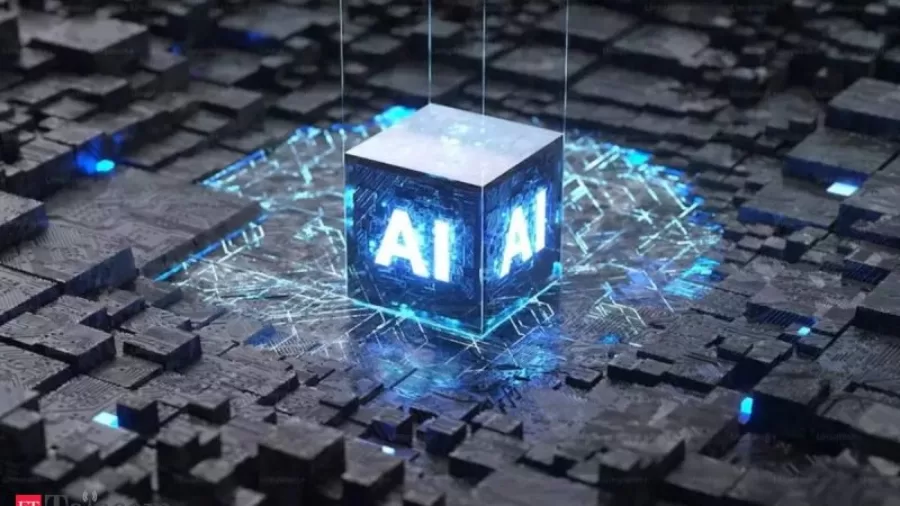Technology
Stargate UAE to Dominate AI Infrastructure as World’s Largest Data Centre Emerges

- Stargate UAE will cover ten square miles and have a planned capacity of five gigawatts, making it the world’s largest AI data centre.
- The first 200 megawatts will be operational by 2026, led by UAE-based G42 and supported by OpenAI, Oracle, and Nvidia. SoftBank is a G42 investor, although not a direct partner in the facility’s construction.
A Giant AI Powerhouse is Rising in the Desert
In the heart of Abu Dhabi, something massive is underway. It’s not another luxury hotel or a skyscraper touching the clouds. This time, it’s a different kind of megaproject—one that doesn’t house people but data.
It’s called Stargate UAE, and once completed, it’s expected to be the largest AI data centre in the world. For anyone who has ever wondered where all the artificial intelligence tools—from chatbots to recommendation engines—actually run, this is where the action will be.
At full capacity, the centre will generate five gigawatts of computing power. That’s more than five times what most of the world’s largest data centres currently manage. Built on a 10-square-mile site, the scale of this development is hard to imagine, but its implications are even more significant.
Built for the Future of AI
G42, a UAE-based technology business, leads the project, with Nvidia, Oracle, and OpenAI playing major roles. These firms are shaping the future of artificial intelligence and have joined forces in Abu Dhabi.
Nvidia’s latest hardware, including chips built on the Grace Blackwell architecture, will power the data centre. These chips cater to handling the vast amounts of data required by advanced AI models. The centre anticipates the deployment of 100,000 chips distributed over 1,400 servers.
The first 200 megawatts of capacity are scheduled to go live by 2026, with the full project expanding in stages throughout the decade.
Why Abu Dhabi?
Abu Dhabi may not be the first place that comes to mind for a data centre of this size, but it has clear advantages. Digital infrastructures have been immensely invested in by the UAE, with a power grid generation supported by solar, nuclear, and natural gas-based sources. This dependable mix of energy supply lends its support to large data centres.
Consequently, with the government promoting the digital economy vociferously through proper laws and international collaboration, Abu Dhabi is progressively becoming attractive to global tech investors.
What Will It Be Used For?
Stargate UAE is being designed to handle large-scale AI workloads. These include developing big language models, powering intelligent systems in health care and energy, and assisting with applications in research, education, and urban planning.
This kind of capacity will allow researchers to complete data-intensive experiments in a quarter of the time. With businesses adopting automation, fraud identification, and market analysis, businesses will benefit from faster, high-power computing.
Given Abu Dhabi’s strategic location, the centre imparts service to substantive portions of Asia, Europe, and Africa, thus globalising far beyond the UAE.
Who’s Involved and What They Bring
G42 is managing operations and strategy. Nvidia provides the core computing hardware. Oracle provides cloud infrastructure. OpenAI collaborates in AI model development. Cisco’s particular involvement is described in less detail in reports. SoftBank is G42’s financial supporter, but it is not physically developing the data facility.
Each player has a specific job, and together, they form a worldwide network dedicated to offering scalable AI capabilities.
What Could Go Wrong?
Challenges include managing the heat in the desert climate, maintaining environmental goals while scaling power, and attracting the technical workforce needed to run the centre long-term.
Supply chain issues, especially around semiconductors, are another factor. Projects of this scale require reliable access to high-end chips, which have been in short supply globally.
These issues are not unique to Stargate UAE, but the size of the centre means they will be watched closely.
What This Means for Business and Brands
For companies using AI tools or services, this new infrastructure could change how and where computing happens. Lower latency, better regional access, and new hosting options could emerge.
It also reflects the broader shift in AI infrastructure beyond traditional tech hubs. The development of major AI facilities in the Middle East introduces new competitive dynamics for businesses in Europe, Asia, and Africa.
What’s Next?
The immediate milestone is the 2026 rollout of the first operational units. After that, expansion will continue. G42 also has plans for a similar project called Stargate US, developed in partnership with American technology firms.
The long-term roadmap includes more AI centres, regional training initiatives, and research collaborations, positioning Stargate as a global network rather than a standalone project.
A Look Ahead
AI is only as powerful as the infrastructure behind it. The scale and ambition of Stargate UAE underline the fact that physical computing power still drives digital progress.
Whether this project becomes a blueprint for others will depend on execution, energy sustainability, and global partnerships. But its significance as a symbol of where AI investment is headed is already clear.
Abu Dhabi is betting big on a digital future. Stargate UAE is its flagship.






















































